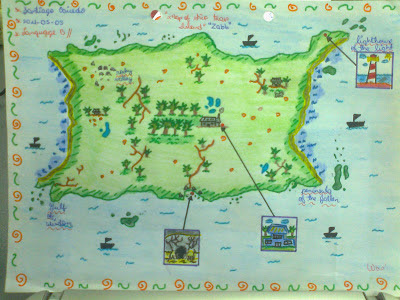What means "What means?"
Let's start by saying that in Spanish there is something called Sujeto Tácito which is similar to the absence of a subject when you give orders or instructions in English because we know the subject is always YOU. In Spanish this feature is used every time the Subject is clear to both the speaker and his/her audience. So if I say: "Andrés está aquí" (Andrés is here) I could continue by saying: "Llegó hace unos minutos" (He arrived a few minutes ago) with no need of the assistance of the pronoun HE. Even if we add ten more sentences if there is no clear change the subject will still be ANDRES. This is what perhaps causes confusion in EFL learners who ask: "What means SISTER?" (as in the pic) instead of "What does SISTER mean? It is hard for an EFL learner not to assume that is correct to ask "What means X?" since in Spanish we ask "¿Qué significa X?" Another component of this problem is that learners tend to translate unconsciously, a habit that generally disappears only when the learner has become highly profficient in the use of the language (yet the presence of MTI again). It is necessary to remind learners that in English if the subject is present in the question, then it is necessary to use an auxiliary verb as it is in the case here. Only when the subject is unknown the auxiliary verb is absent from the question as in: "Who knows the answer?" or "What needs to be done?"
So then asking "What means what means?" is the repetition of the same mistake or just another way to bother the ever-busy English teachers.




Comments